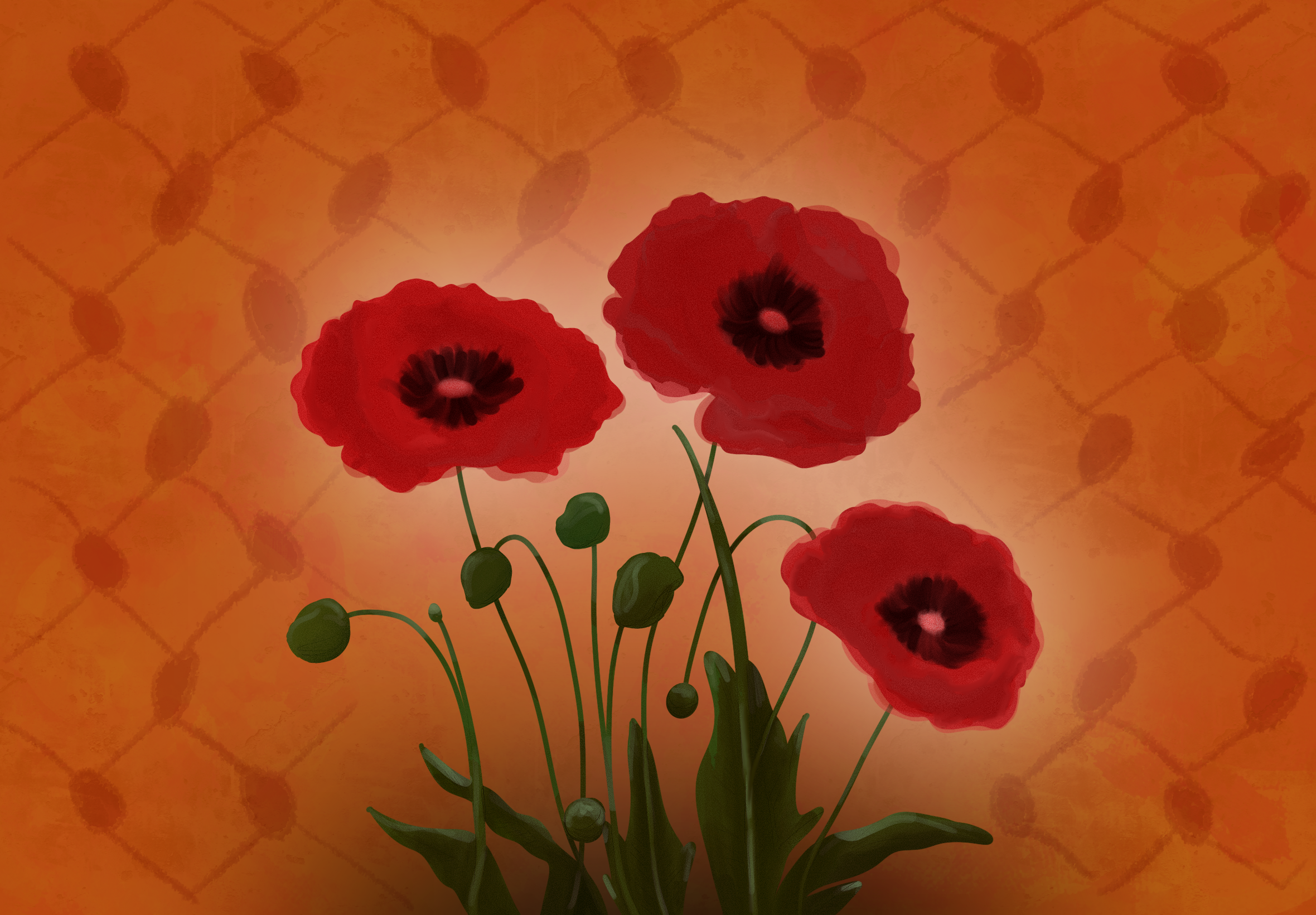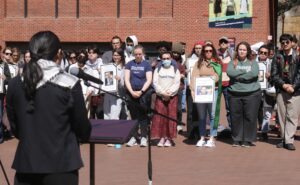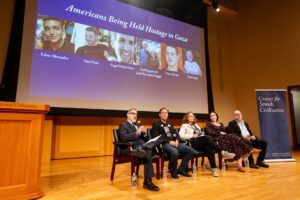Content warning: This article references systemic violence, war, Islamophobia, and antisemitism.
Shocking. Cruel. Terrifying. Devastating. Criminal. Some say there are “no words” to describe the searing events of October in Israel and Gaza. But these words and many others accurately describe the suffering of both Israelis and Palestinians at this terrible moment in the history of the modern Middle East. As scholars of the region who have devoted years of research, study, teaching, and discussion to the Israeli-Palestinian tragedy, we implore our students, administration, and colleagues to care for all humans impacted by the ongoing carnage flooding our news feeds.
This requires seeing matters whole, in context, and comprehending the entire horrific situation through lenses beyond our own personal, ethnic, religious, or political frames of reference. It also demands a deeper and broader historical grasp of the policies, practices, and systems that have brought us to this brink where war crimes, including genocide, are being committed daily.
The context is that this conflict is political: over the course of a 56 year long occupation and a 16 year long blockade, the recent attacks by Hamas and ensuing Israeli military response are only the latest in a sustained and asymmetrical relationship between one country that controls virtually all aspects of life for the now stateless populations subject to that control. Empty promises and platitudes have been issued from virtually every government about this situation, but none has done anything significant to address it. Indeed, until the recent violence, many governments boasted of their ability to “manage” this injustice without worrying about ever achieving justice.
We fear the knee-jerk and too often decontextualized reactions to the conflict. Some of these frighten and harm many students and threaten academic freedom on our campus. We deplore the biased news coverage and ugly stereotypes, particularly those about Arabs, Palestinians (both Muslim and Christian), and Muslims, that too often feed hatred in American society and on our campus.
An example might help illustrate. Saudi Arabia and Italy have human rights records that can and should be scrutinized and criticized without that criticism being labeled “Islamophobic” or “anti-Catholic.” So, criticism of Israel—and especially its current disproportionate and genocidal actions in Gaza, East Jerusalem, and the West Bank—can and should be done without knee-jerk accusations of anti-Semitism.
Hatred of, and bigotry toward, Jews now and for centuries has been a real threat to peace and equality. But calling out a siege blocking food, water, and medicine to innocent people is not anti-Semitism. Decrying an aerial bombardment of an enclave the size of Philadelphia and its civilian cost is not anti-Semitism. Demanding justice for Palestinians under occupation is not anti-Semitism.
We are concerned about the American government’s failure to distinguish between the actions of militants and the vast majority of Palestinian civilians. This negligence led to the consequent US support of ethnic cleansing and the collective punishment of Palestinians living under a decades-long occupation and a system described by international law experts as apartheid. We fear the conflagration that could easily erupt throughout the region and even here at home.
More than sixty Georgetown professors have expressed our urgent concerns in a public statement. President DeGioia has sent us a considered response and clear concern for all victims of the events of this past month. We remain alarmed at discourses on our campus that demonize Palestinians, even as the death toll in Gaza exceeds 11,000, the overwhelming majority of whom are civilians, including over 4,500 children. Those who have survived the brutal Israeli aerial onslaught are clinging to life and tendrils of hope in the world’s largest open-air concentration camp as fuel supplies run out, hospitals are bombed, water becomes dangerously scarce, and food and medicine are blocked from entry into the Gaza Strip.
We ask: What does cura personalis mean in this situation? How can we prevent wider and worse suffering and death? What is the role of our university at this critical moment?
We invite students, staff, and faculty to develop answers to these questions. Our university’s role is, as it has been for decades if not centuries, to advance understanding, teach critically, and serve our students, communities, and colleagues. But we cannot consider these questions and we cannot do what we are supposed to do—what a Jesuit university especially asks us to do—when one side is disproportionately stereotyped, silenced, homogenized, and ultimately dehumanized. To be able to ask and answer these questions is something we can do from the privilege of where we are right now, in relative safety and security. We should be working for the same for others. At the very least, we must do all we can to bring about a cease-fire now.
Signed,
Laurie King, Teaching Professor, Department of Anthropology
Fida Adely, Associate Professor of Arab Studies, SFS
Sam Halabi, Professor, School of Health
Elliott Colla, Associate Professor, Department of Arabic and Islamic Studies
Nader Hashemi, Associate Professor, School of Foreign Service
Noureddine Jebnoun, Adjunct Associate Professor, CCAS-SFS
Joan Mandell, Adjunct Instructor, CCAS/SFS Culture and Politics
Khaled Elgindy, Adjunct Instructor, CCAS
John L. Esposito, Distinguished University Professor, ACMCU-SFS
Marwa Daoudy, Associate Professor, CCAS/SFS
Mustafa Aksakal, Associate Professor, SFS/History
Rochelle Davis, Associate Professor, SFS
Josh Ruebner, Adjunct Lecturer, Justice and Peace Studies
Nejm Benessaiah, Assistant Teaching Professor, Department of Anthropology
Judith Tucker, Professor Emerita, History
Gregory Afinogenov, Associate Professor, History




